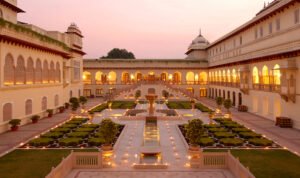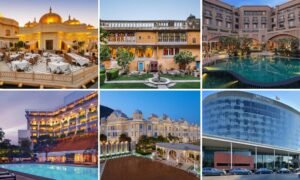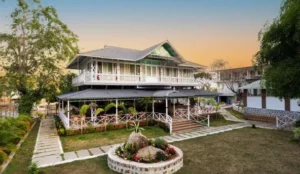Among the towering figures of India’s freedom struggle, Jawaharlal Nehru holds a special place — not just as a leader who helped win independence, but as the visionary who laid the foundation of a modern, democratic, and secular India. Loved by children as Chacha Nehru and respected worldwide for his intellect and diplomacy, Nehru’s contributions continue to shape India’s journey long after independence.
Early Life and Education
Jawaharlal Nehru was born on November 14, 1889, in Allahabad, into a wealthy and politically active family. His father, Motilal Nehru, was a prominent lawyer and early Congress leader. Nehru studied in England at Harrow and Cambridge, and later trained as a barrister at the Inner Temple, London.
However, despite his elite education, Nehru was deeply moved by the condition of Indians under British rule. Inspired by leaders like Mahatma Gandhi, he returned to India and soon dedicated his life to the freedom struggle.
A Leader in the Freedom Movement
Nehru joined the Indian National Congress and quickly rose to prominence as a gifted speaker, organizer, and thinker. He worked closely with Gandhi and was deeply influenced by Gandhian values, though his ideas were also shaped by socialism, science, and modernization.
Throughout the 1920s and 30s, Nehru played key roles in major Congress campaigns and was arrested multiple times by the British. He traveled extensively across the country, connecting with people from all walks of life, and advocating for self-rule, education, and industrial development.
He was also a strong internationalist, supporting anti-colonial movements worldwide and imagining a future where India stood proudly among global powers.
India’s First Prime Minister
When India gained independence on August 15, 1947, Nehru became the first Prime Minister of India — a role he held until his death in 1964. His speech on the eve of independence, “Tryst with Destiny,” remains one of the most iconic in Indian history:
“At the stroke of the midnight hour, when the world sleeps, India will awake to life and freedom.”
Nation Building and Vision
As Prime Minister, Nehru focused on nation-building with a long-term vision. His goals included:
Establishing democracy through the world’s largest written constitution.
Promoting scientific temper by founding institutions like the Indian Institutes of Technology (IITs) and the Indian Space Research Organisation (ISRO).
Encouraging industrialization through a mixed economy model.
Ensuring secularism and unity in diversity by protecting religious and cultural pluralism.
Advancing education, especially for children, earning him the affectionate title Chacha Nehru.
Legacy and Global Influence
Jawaharlal Nehru’s leadership wasn’t just limited to India. He co-founded the Non-Aligned Movement (NAM), which gave newly independent nations a voice during the Cold War. Though his policies and decisions faced criticism at times, particularly on economic fronts and the India-China war of 1962, his dedication to democracy and development laid the foundation for India’s future.
Remembering Nehru
Nehru passed away on May 27, 1964, but his legacy lives on. His birthday, November 14, is celebrated every year as Children’s Day in India, a tribute to his love for the young and his belief in the power of education.
“The future belongs to those who believe in the beauty of their dreams.” – Jawaharlal Nehru
His dream of a strong, united, and forward-looking India continues to inspire, making Nehru not just a leader of the past, but a guide for the future.









